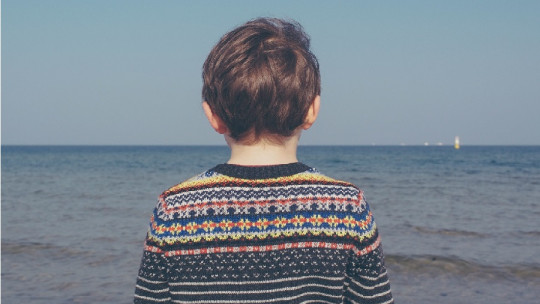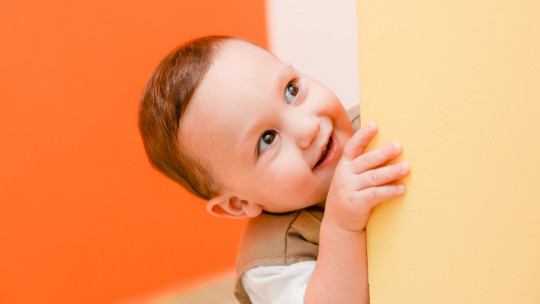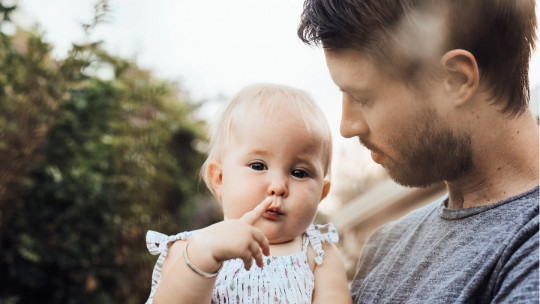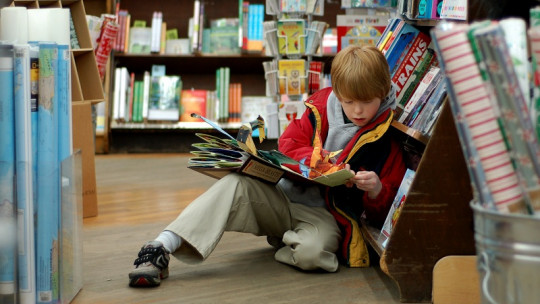Emotional intelligence is greatly forgotten in our educational system But, as parents, we are also not paying adequate attention to the correct development of the emotional aspect of our children.
In order to get off to a good start in this enterprise of helping them discover and enhance their emotions, I have allowed myself to write this practical guide.
1. A shared obligation
Parents, teachers, those who are both things at the same time, and all adults without exception are responsible for ensuring that children receive the emotional education they deserve, so that they can acquire good emotional intelligence and a balanced personality. But, logically, the adult who is imbued with erroneous concepts on this subject will not be able to provide adequate education and may – unintentionally – contribute a negative influence to the good end he intended.
2. There are no negative emotions
From the outset, It is essential to be clear that the discrimination between negative emotions and positive emotions is incorrect All emotions have a use for the individual survival of the child. What we have to teach the child is that, when faced with an emotion, there are positive reactions and specific behaviors that are negative for society and can cause problems.
3. Emotional maturity by stages
Another fundamental concept is that the emotional maturity of the child grows in successive stages, from birth to emotional adulthood, as he or she becomes master of his or her brain functions. The treatment of her emotions must be appropriate, therefore, to each stage of her evolution or we run the risk of unintentionally harming her or – at the very least – wasting inappropriate efforts.
Until six months, the child only obeys sensory and motor stimuli (instinctive based) and is not aware of his or her emotions. From this age he can begin to differentiate his basic emotions with the help of adults. Until approximately three years old, he is not able to change his behavior in a stable manner based on emotions (intuitive capacity). And until he enters the operational stage, at approximately six years old, he cannot apply “the use of reason” to his behavior and learn to work as a team. From this age he learns to identify and name the basic emotions that he experiences and can reflect on them and subject them to self-control. But good management of derived emotions and feelings will not be able to be achieved until the age of ten or eleven. And the maturity of knowing how to foresee the consequences of his actions and the ability to plan with a vision for the future does not usually arrive before the age of sixteen: the emotional age of majority.
4. Love is not enough
A very common mistake is to think that if we give children love and protection, the result of their emotional intelligence will necessarily be good Love and protection are, of course, essential. But they are not enough. They must come accompanied by a balanced emotional education. If parents overprotect due to excessive permissiveness, or are authoritarian and too severe, or are uncontrolled and unpredictable, emotional damage can seriously affect the personality of the future adult, despite the love received.
5. How do you know if a child has emotional problems?
Diagnosing that a child is having problems in his emotional education is very easy A healthy child is restless, impatient, noisy, spontaneous, playful, curious, creative, social, trusting of his peers and adults… Any lack of any of these characteristics will have to be analyzed because it can be a warning of possible emotional problems. We will have to detect which basic emotions the child feels overwhelmed with and offer the appropriate support.

6. How to deal with your fears
Let’s start with fear. A child has many causes of possible fears: of being left alone, of being abandoned, of being a nuisance, of being rejected, of not being able to feed, of the dark, of the cold, of the heat, of the inclemencies of nature, to get sick, to strangers, to authoritarian or hostile people, to being to blame for mom and dad arguing… The solution is to give it the security it needs
Physical security against disease, hunger and all kinds of physical dangers. And emotional security. It is advisable for parents to repeat as many times as necessary that they loved him before he was born, that they love him as he is and that they will always love him. If the child behaves badly, we will tell him that we don’t like what he does, but that we love him without any kind of doubt or qualms. As the extraordinary educational psychologist Rebeca Wild says: “If the child feels good, he does not behave badly.”
7. How to deal with his tantrums
Let’s continue with the anger. A child immersed in a tantrum can display spectacular energy. The causes of the tantrum can also be multiple: they have refused a wish or a whim, they have taken away a toy, they have scolded them “unfairly”, they do not pay attention to them or they do not listen to them, they have hit or humiliated them and He couldn’t defend himself… The support that the child needs here is understanding
Show him clearly that we understand the cause of his tantrum but that he must learn to control it; teach him to be less selfish and know how to share his belongings ; that we must get used to enduring some frustrations in life; that you have to look for new motivations and new expectations and not give up; that we must defend ourselves against injustice with calm and serenity; that dangers must be avoided preventively…
8. How to deal with your sadness
Another basic emotion is sadness For having lost a toy, a favorite object, a pet or a loved person; for not being able to be with friends; for not having the same things that the children around him have; for having lost father and mother… Adequate support is consolation. Show empathy for your loss, our support in your pain, offer help to cope with your loss, support you with distractions such as games and new motivations.
9. The power of games
Play is an instinctive activity in the child and, consequently, it should be the child’s favorite distraction from bad tendencies. All educators and psychologists agree on the physical, physiological, emotional, social and cognitive benefits of team games.
10. How to deal with your shame
One of the emotions with the most dire possible consequences is shame. Shame about being too big or too small; for being fat or skinny; for being different; for having physical problems or disabilities; for not understanding what they are talking about; for not knowing how to express; for having done something bad; for having suffered physical or sexual abuse… The best help to overcome shame is to promote your self-esteem.
Repeat as many times as necessary that each person is unique and worth as much as the one who is most valuable Teach him to improve his problems or defects without stressing him. Help you recognize your mistakes and overcome them. Teach him to socialize and have friends who reciprocate. Gain their trust so that they make us a participant in possible physical or sexual abuse.
11. Loss of self-esteem
We must prevent the child from losing self-esteem by all means Because this means that the child internalizes that he is useless and of no use; that he doesn’t deserve to be loved; that it is natural for them to ignore or despise it; that it is logical that they make fun of him and humiliate him.
As a consequence of a lack of self-esteem in children and adolescents, in adulthood we will have people with behavioral disorders. If there has been a passive reaction, the adult will show serious emotional dependencies; fear of having intimate relationships; fear of speaking in public and being noticed; a pathological insecurity; an inferiority complex. If there has been an aggressive reaction, the adult will present strong tendencies toward tyranny, despotism, cruelty, egocentric narcissism, and an exaggerated shell of false security.
12. Basic recommendations
It is worth paying attention to a number of recommendations:
13. Emotional wounds
It has been shown that caregivers who apply severe punishments with coldness and authoritarianism without affection towards children, can cause personality disorders in future adults: fanaticism about order, obsessive compulsive behaviors, pathological insecurities, unhealthy perfectionism.
As the Canadian writer Lise Bourbeau warns us, the five great emotional wounds that usually leave their mark on a child’s future are: rejection, abandonment, humiliation, betrayal and injustice. The main motivation for parents to try to avoid these five emotional wounds for their children by all means may be the memory of having suffered them in their childhood.
14. Against the feeling of abandonment
The child can endure long absences from his parents if he has irrefutable evidence that they love him and the people who care for him frequently revive the memory and hope of reunion. Emotional security is more a matter of intensity than frequency
15. We have all been children
To facilitate the understanding of the child’s emotions and behaviors, it is worth remembering that we were also children and that the child we were lives on inside us. We must recover it so that we can be good friends with our children With love, balance, protection, understanding, trust, comfort, appropriate reward and punishment systems and – above all – cultivating their self-esteem, we will ensure that our children, our grandchildren, all the children in our society achieve the emotional intelligence they deserve.









